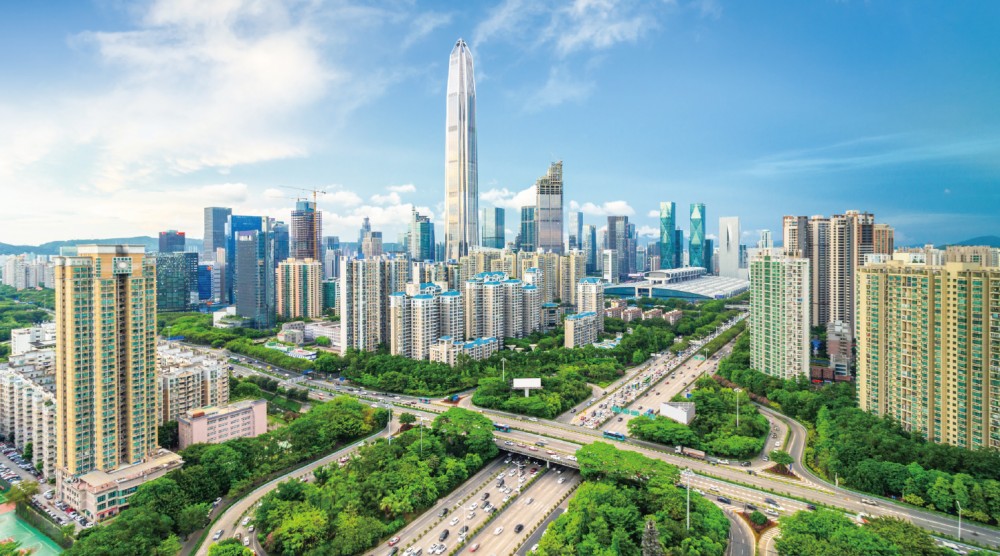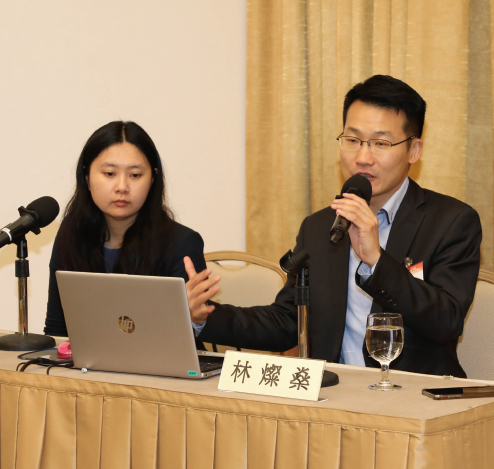The Guangdong-Hong Kong-Macao Greater Bay Area (Greater Bay Area) is now the preferred choice for investment for many Hong Kong merchants. The new China tax laws promulgated this year feature certain incentives on individual income tax for the Greater Bay Area. Given that tax matters are complicated by nature, investors interested in the Greater Bay Area, and the mainland as a whole, must first acquire a clear understanding on the details concerned.
China has implemented a new Individual Income Tax Law that came into effect on the first day of 2019: all non-domiciled individuals (including Hong Kong people) are subject to the individual income tax on their worldwide income. To lure overseas talents (including those from Hong Kong and Macao) to develop in the Greater Bay Area, the Ministry of Finance and the State Taxation Administration announced a tax incentive policy for the Greater Bay Area in March. According to Louis Lam, GMS South China Managing Partner of PricewaterhouseCoopers, the eligibility for the above incentives depends on important factors, such as the number of days a person works in the Mainland, whether the individual owns a domicile in the Mainland, etc.
The 183 days mark
 Crystal Huang, Taxation Manager of PricewaterhouseCoopers, explained that the term “domicile” does not simply refer to where someone lives in the Mainland. As an example, she said, “A Hong Kong person who works, studies and travels in the Mainland and returns to Hong Kong afterwards to his/her family in Hong Kong is basically regarded as a ‘non-domiciled individual’.”
Crystal Huang, Taxation Manager of PricewaterhouseCoopers, explained that the term “domicile” does not simply refer to where someone lives in the Mainland. As an example, she said, “A Hong Kong person who works, studies and travels in the Mainland and returns to Hong Kong afterwards to his/her family in Hong Kong is basically regarded as a ‘non-domiciled individual’.”
“Non-domiciled individuals” are further categorized into “residents” and “non-residents”, based on the number of days the individual lives in Mainland China. “Residents” are those who stay in China for 183 days or more a year; otherwise, they are “non-residents”. A day means staying in the Mainland for all 24 hours. For example, if a person goes to work in China on a Monday and returns to Hong Kong on a Friday, only three days are counted as the number of days residing in China. Many Hong Kong people live in Hong Kong and commute between Hong Kong and the Mainland in the two days they stay. In this case, they are not staying the full 24 hours in the Mainland on both days, meaning these are not counted as days residing in China.
Lam added, for people who have resided in the Mainland for more than 183 days per year for less than six consecutive years, their offshore income can be exempted from the individual income tax of China. For any year that an individual has resided in the Mainland for more than 183 days, the number of consecutive years can be reset if the individual has a period of absence from China for more than 30 days in a single trip.
An individual who owns no properties in Hong Kong may be regarded as a permanent resident of China
 In fact, many Hong Kong people have already owned real estates in the Greater Bay Area. Therefore, some of them are anxious that their worldwide income would be subject to the income tax of China. Lam explained that the State Taxation Administration had already responded to this concern a few months ago, emphasizing on the importance of the intention to stay. Huang elaborated further, “A ‘habitual resident’ refers to an individual of the Chinese nationality (including Hong Kong people) who must return to reside in China after completing the purposes of working, visiting families, travelling and studying outside of China. Simply put, these are individuals without permanent right of abode outside of China. Even if an individual does not hold a foreign passport, if he or she holds a permanent resident card issued by a foreign country (e.g., the green card), he or she would still be regarded as a foreigner in the four major cities of Beijing, Shanghai, Guangzhou and Shenzhen. More thorough considerations should be made for other provinces and cities. Hong Kong individuals whose identity card bears ‘three stars’ are also regarded as foreign persons. Therefore, most Hong Kong people need not be overly anxious.”
In fact, many Hong Kong people have already owned real estates in the Greater Bay Area. Therefore, some of them are anxious that their worldwide income would be subject to the income tax of China. Lam explained that the State Taxation Administration had already responded to this concern a few months ago, emphasizing on the importance of the intention to stay. Huang elaborated further, “A ‘habitual resident’ refers to an individual of the Chinese nationality (including Hong Kong people) who must return to reside in China after completing the purposes of working, visiting families, travelling and studying outside of China. Simply put, these are individuals without permanent right of abode outside of China. Even if an individual does not hold a foreign passport, if he or she holds a permanent resident card issued by a foreign country (e.g., the green card), he or she would still be regarded as a foreigner in the four major cities of Beijing, Shanghai, Guangzhou and Shenzhen. More thorough considerations should be made for other provinces and cities. Hong Kong individuals whose identity card bears ‘three stars’ are also regarded as foreign persons. Therefore, most Hong Kong people need not be overly anxious.”
However, Lam mentioned that Hong Kong people who intend to stay for an extended period in the Greater Bay Area and have sold or leased their Hong Kong property may face higher risks of being regarded as a permanent resident of China, as the individual does not show an intention to return to and stay in Hong Kong; nor does he of she have a place to stay. For this situation, Lam suggests setting the balance right on the number of days staying in the Mainland and Hong Kong. It may not be a good idea to claim that the individual is already residing permanently in the Mainland when interviewed by the media. Although the Residence Permit for Hong Kong, Macao and Taiwan Residents earlier launched by the State Council does not lead to tax on worldwide income on its own, it does indicate an intention to increase the gravity of staying in the Mainland. The balance of staying in Hong Kong and China, therefore, must be noted.
Permanent establishments are subject to China tax
 Many Hong Kong companies are sending their staff to work in the Mainland. Are these employees required to pay Mainland tax? A very common example is that the employee is hired by a Hong Kong company but is posted to work in Guangdong, while receiving his / her pay in Hong Kong. Should this employee be paying the tax of the Mainland? Lam explained that the exemption from China income tax depends on three factors: the first one is the number of days a person stays in China; the income from the employment is calculated when the stay in the Mainland is over 90 days in a year, and a day refers to all its 24 hours. The second factor is: the income must not have come from a job hired and paid for in the Mainland. As such, quite many companies are hiring and paying their employees in Hong Kong and have them work in Shenzhen.
Many Hong Kong companies are sending their staff to work in the Mainland. Are these employees required to pay Mainland tax? A very common example is that the employee is hired by a Hong Kong company but is posted to work in Guangdong, while receiving his / her pay in Hong Kong. Should this employee be paying the tax of the Mainland? Lam explained that the exemption from China income tax depends on three factors: the first one is the number of days a person stays in China; the income from the employment is calculated when the stay in the Mainland is over 90 days in a year, and a day refers to all its 24 hours. The second factor is: the income must not have come from a job hired and paid for in the Mainland. As such, quite many companies are hiring and paying their employees in Hong Kong and have them work in Shenzhen.
The third factor is about whether a company is a permanent establishment in the Mainland. If this is the case, then China has the right to demand the Hong Kong company to pay the individual income tax of the Hong Kong company to the Chinese tax zone on the business activities performed by employees delegated to work in China; these companies are also subject to paying the value added tax for service provision. The concept of “project days” is an important indicator for determining whether a company is a permanent establishment. A “project day” means any day that at least one person of the company works in China. A company is a permanent establishment when it has more than 183 “project days” a year.
Lam pointed out that the tax authorities of the Mainland place more importance on the condition of whether a company is a “permanent establishment”. However, he believed that to prevent any major impact on the business environment, the definition may not be put into actual practice immediately in the near future. Yet, the authorities have the right to retrospectively impose tax on past years. He suggested that Hong Kong merchants should consult experts on corporate tax and make arrangements to set the balance right for the permanent establishment status.




